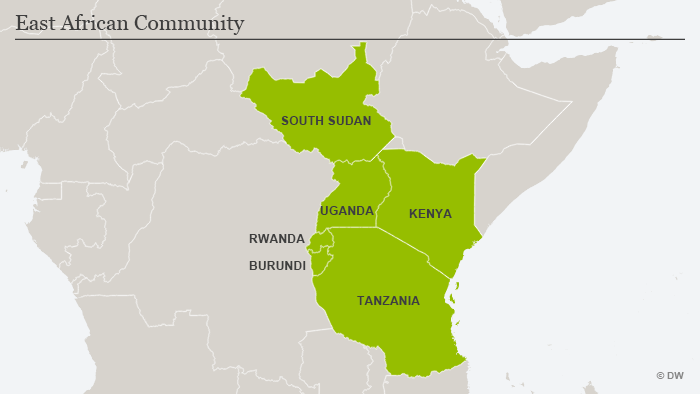East Africa has the potential to experience a gas and liquefied natural gas (LNG) export boom in the coming years due to several projects that have been released. A new area of interest for the oil companies since the mid-2000s, four East African countries are now certain to produce oil (Uganda-Kenya) or gas (Mozambique-Tanzania) in the not too distant future. Mozambique has approved two projects totaling more than 15 million tons per year (Mt/yr.) of liquefied gas and a third should be started by the end of 2019. The first ENI Floating Liquefied Natural Gas plant (FLNG) will come onto the market in 2022 and four other onshore liquefaction trains, two of which will produce 6.44 Mt (Anadarko/Total) and two of which will produce 7.6 Mt (ExxonMobil/ENI), will be available around 2025.
However, with the recoverable reserves, the companies involved are counting on 50 or even 60 Mt/yr. by 2030. This volume will help Mozambique to achieve the world’s fourth-largest LNG export capacity in the medium term after the United States, Qatar and Australia. As for Tanzania, no development should be approved before 2020 in the best-case scenario. With regard to oil, no project in Uganda or Kenya has been formally launched. Deadlines of 2022 are considered for Uganda – probably postponed again after the failure of the sale of Tullow Oil’s assets to Total and CNOOC – and Kenya. In Uganda, the relationship between the oil companies and the government remains very difficult, postponing the implementation of developments.
Oil discoveries in East Africa are important at regional level (potentially up to 300,000 barrels per day, or 0.3% of the current global total), but their development is related notably to the following factors specific to each country, with each one having different political-economic trajectories from the other. Firstly, the governance of the hydrocarbon sector in these countries, where discoveries have been detected, is struggling to be implemented, as there are too few competent civil servants in this field. Secondly, demands that maximize state control over the oil sector – a refinery in Uganda or the use of local arbitration courts in Tanzania – are likely to hinder the development of oil projects, even though these countries need the income as quickly as possible, in order to build basic infrastructure for their populations and demographic pressure is often extremely intense.
Thirdly, the politicization of the sector, as in Uganda and Tanzania, makes projects even more complex to finance. In Kenya, it is more local and ethnic dynamics in the future production area that complicate their development. Although these security challenges seem largely contained in Uganda, nevertheless they are a key topic in Kenya (Al-Shabab) and in Mozambique (Ansar al Sunna), and perhaps soon in Tanzania with penetration by Islamist movements in the province where the LNG trains will be located. Last, but not the least, the presence of hydrocarbons in the most disadvantaged regions in these East African countries – Uganda/Lake Albert, Kenya/Turkana, Mozambique/Cabo Delgado, Tanzania/Lindi-Mtwara – makes the oil and gas development very complex because of the increasing social demands. Water stress, land use, distribution of economic and financial benefits, and electricity are equally conflicting issues.
East African oil and gas developments are taking many years to become established. These multiple governance and security difficulties outlined above make these projects very risky to develop, requiring the oil companies to do a lot of learning. Sometimes, like for Tanzania, the developments are made extremely complicated by the host country’s demands. Furthermore, all the infrastructure must be built by the oil companies which operate in oil regions far away from the capitals.
With regard to the issue of revenue, although the laws governing them are often precise and promising, governance on this subject ultimately depends on the government. Bypassing the laws is highly possible in countries where the counterweights have been gradually crushed as in Uganda. Countries with traditions of strong local powers, like Kenya, are more likely to redistribute revenue, but with the potential consequences of corruption multiplied by the number of actors involved, as illustrated by the disastrous decentralization of oil revenue in Nigeria. As for Mozambique and Tanzania, the dominance of the presidential parties does not create enthusiasm for revenue transparency. It should also be noted that the committed oil companies all have CSR projects to support territorial development in the respective regions.
Although some criticism has been made – it is clear that the oil companies cannot replace governments. It is also obvious that a prerequisite is transparency in the sector’s revenue: Mozambique and Tanzania have been members since 2009 of the Extractive Industries Transparency Initiative (EITI), unlike Kenya and Uganda, which have not yet submitted their application. Finally, the major issue is the proper use of this revenue to foster a development strategy that involves access to energy and economic services, and infrastructure and improved education. In a context where an Islamist threat exists and is mixed with social and ethnic tensions, the long-term security of infrastructure necessarily requires a development strategy.
‚The Development of Hydrocarbons in East Africa: Political and Security Challenges‘ – Research Paper by Benjamin Augé – Institut français des relations internationales / IFRI.




